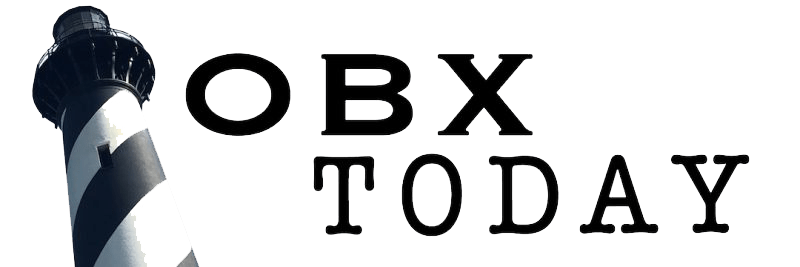
The Corolla Wild Horse Fund last week rescued a wild horse from the beach after he choked on food and nearly died. And though he was saved, Amadeus Jr. is now out of the wild forever.
Known as Junior, the horse was spotted Wednesday morning running around frantically, rolling and in a lot of discomfort.
“We thought that he might be colicking, but upon arrival it was clear he was choking. He was behaving exactly like Danny did last year when he choked,” CWHF herd manager Meg Puckett said in a Facebook post. “There were several moments during the rescue where we thought he wasn’t going to make it, but we were ultimately able to get him onto the trailer and to the rescue farm, where the vet met us immediately.”
Last year, a yearling colt named Danny died in “a horrific, devastating, completely preventable way” after choking on an apple.
Junior, it appears, will make a full recovery after the CWHF veterinarian was able to get the obstruction to pass.
“In addition to the choke, he also lacerated his eyes pretty badly when he was rolling in the sand. We are medicating them twice a day and they are starting to look better but without treatment he probably would have had permanent damage to his eyes,” Puckett wrote.
It’s unknown if Junior choked on food someone fed to him or something he got out of the garbage, but the message is the same either way.
“Please, please, please be responsible and thoughtful if you are staying in the horses’ habitat. There are signs everywhere saying not to feed or approach the horses, so there is absolutely no excuse for ignorance,” Puckett wrote. “Anyone who feeds a horse is doing it knowing they could potentially kill that horse.”
Puckett said the 4×4 beaches of northern Currituck where the wild horses roam have also seen issues this summer with overflowing garbage cans.
“If you are renting a house and the garbage is overflowing, please call your rental company to come pick it up. If there aren’t enough cans, let them know. Tie your bags up and make sure the lids are securely fastened,” she wrote.
CWHF crews put Junior on the trailer at the foot of Penny’s Hill, where he had lived all his life.
“In fact, one of our favorite pictures of his dad, Amadeo, was taken at the top of Penny’s Hill,” Puckett wrote. “His ancestors have called that area home for hundreds of years and Junior’s loss from the wild herd is truly devastating. Of course we are happy to have him on the farm, happy that we saved him, and happy knowing he will be safe and comfortable for the rest of his life. But he should be wild.”
Wild horses removed from the beach can’t be returned to the wild. After being treated, the mustangs are acclimated to humans and being fed, and are vaccinated.
Related story:
Blind wild horse Amadeo, called ‘king of the beach,’ dies at age 40
“We are so grateful to the person who first called in about Junior; a couple hours later and he would not have survived. We are also indebted to Dr. Sarah, a vet who just happened to be vacationing in a house right next to where Junior was,” Puckett wrote.
“She kept an eye on him while we were making our way up, provided us with updates, and helped us catch him and get him loaded onto the trailer. And as always, we must thank our Currituck County sheriff’s department for their support and assistance. Junior had a lot of people working very hard to save his life on Wednesday.”
The CWHF manages the herd of about 100 wild mustangs roaming the four-wheel-drive beaches and a rescue farm of about 15 horses. Though the mustangs have roamed wild and free for hundreds of years, their freedom is in jeopardy as visitors continue to ignore the laws in place to protect them.
“Please don’t take the horses’ existence here for granted. Follow the rules so they will continue to thrive on the northern beaches for many more generations,” Puckett wrote. “It’s absolutely possible to live in harmony with them; to watch them and love them and appreciate everything about them without getting close, and certainly without feeding.
“Just like every individual horse is critically important to the genetic health of the herd, every single person who sets foots on the beach is critically important to their survival too. All it takes is one apple from one person. Please do not be that one person who causes a tragedy to happen.”
